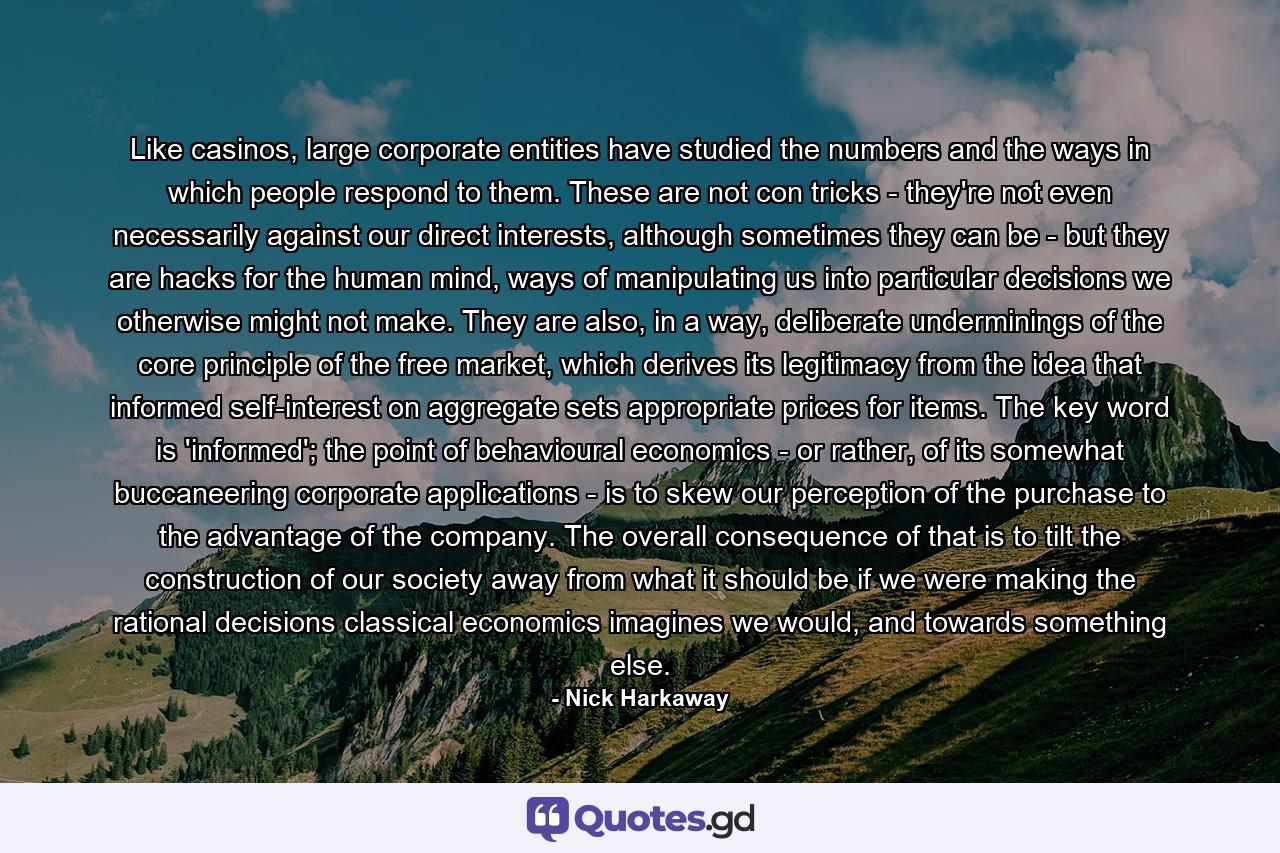Like casinos, large corporate entities have studied the numbers and the ways in which people respond to them. These are not con tricks – they’re not even necessarily against our direct interests, although sometimes they can be – but they are hacks for the human mind, ways of manipulating us into particular decisions we otherwise might not make. They are also, in a way, deliberate underminings of the core principle of the free market, which derives its legitimacy from the idea that informed self-interest on aggregate sets appropriate prices for items. The key word is ‘informed’; the point of behavioural economics – or rather, of its somewhat buccaneering corporate applications – is to skew our perception of the purchase to the advantage of the company. The overall consequence of that is to tilt the construction of our society away from what it should be if we were making the rational decisions classical economics imagines we would, and towards something else.
